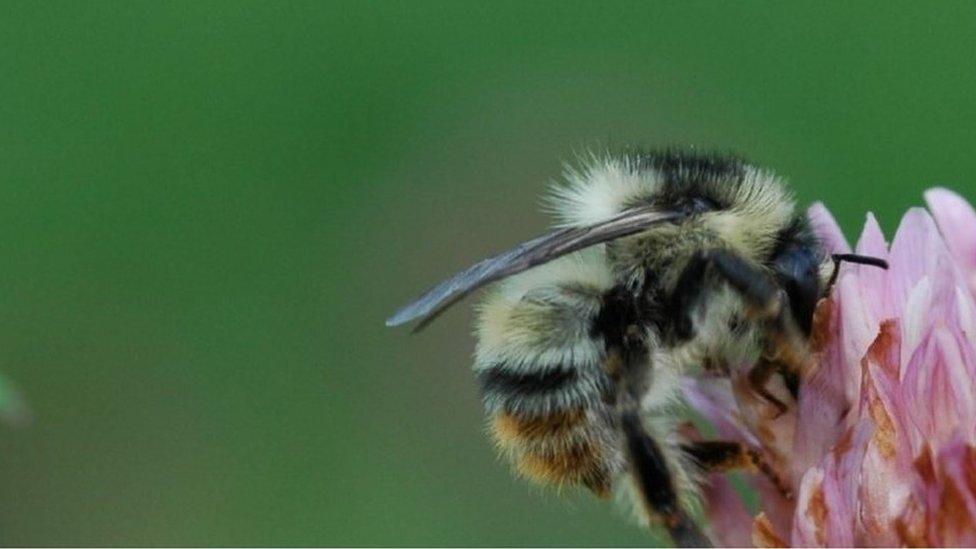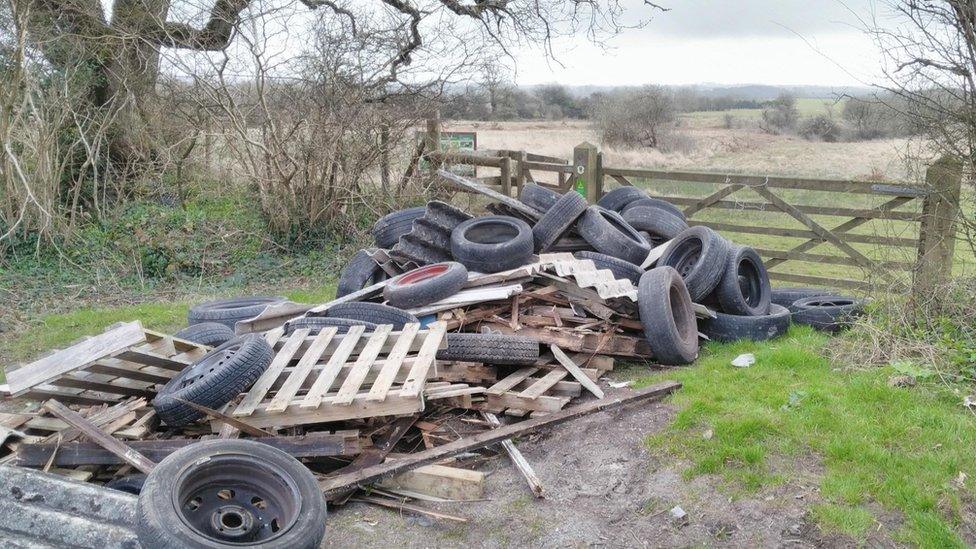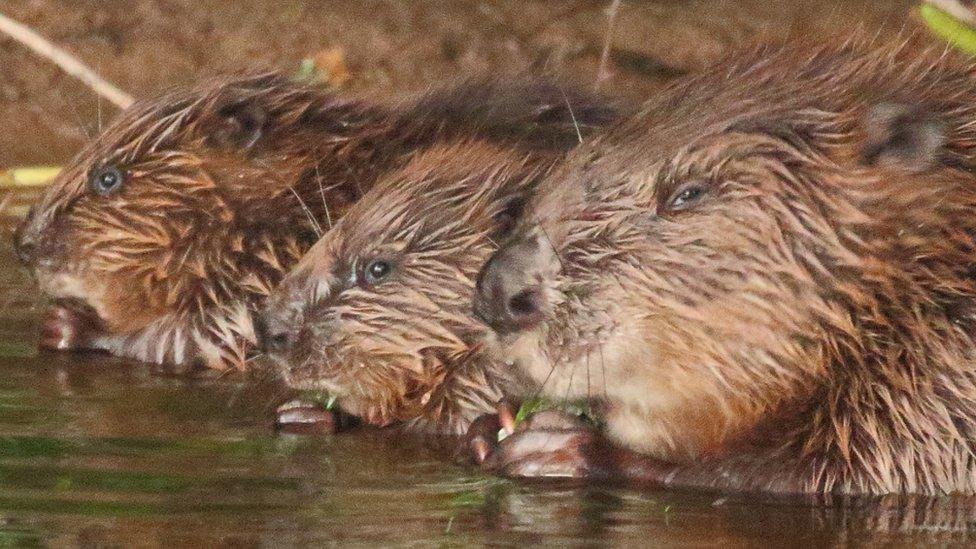Yeovil hay meadow foraging ground boost for rare bees
- Published

The shrill carder bee only exists in five areas of the UK, including Somerset
A country park in Somerset is creating habitats aimed at allowing a rare species of bee to thrive.
Ham Hill Country Park rangers will leave dense grassy tussocks to grow in the hay meadows.
They hope shrill carder bees can forage, nest and hibernate there.
Countryside manager Rachael Whaites said the work would also help other pollinating insects, small mammals, reptiles and birds.
The work is in partnership with the Bumblebee Conservation Trust.
"We hope the shrill carder bee takes up residency on Ham Hill so that we can help to safeguard it as part of the British countryside for the future," said Ms Whaites.
Shrill carder bees emerge from June to October, so the aim is to create habitat that will be a haven of late blooming wildflowers for the bees to forage from.
These bees are known to thrive on flowers from the pea, daisy, mint and broomrape plant families. They currently only exist in five isolated areas of the UK, including Somerset.
Ham Hill Country Park is run by South Somerset District Council.
Cabinet member for environment, Sarah Dyke, said: "As the number one pollinators, bees are essential to our eco system, and so it's incredibly important that we create areas to support them wherever possible."
A total of 25 organisations, including the RSPB, Buglife, and Natural England are working together to help this bee species.
- Published28 July 2020

- Published20 November 2019
